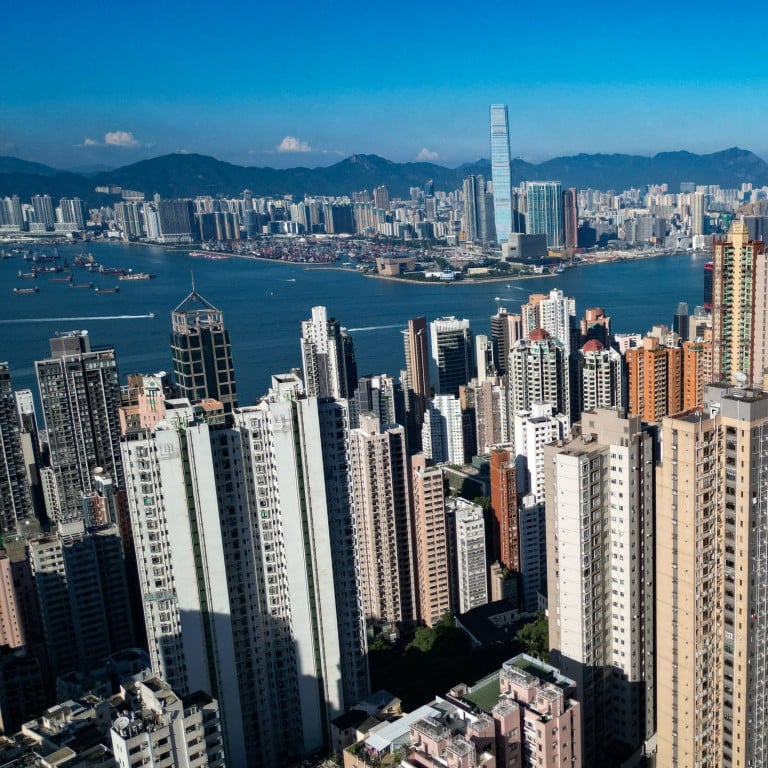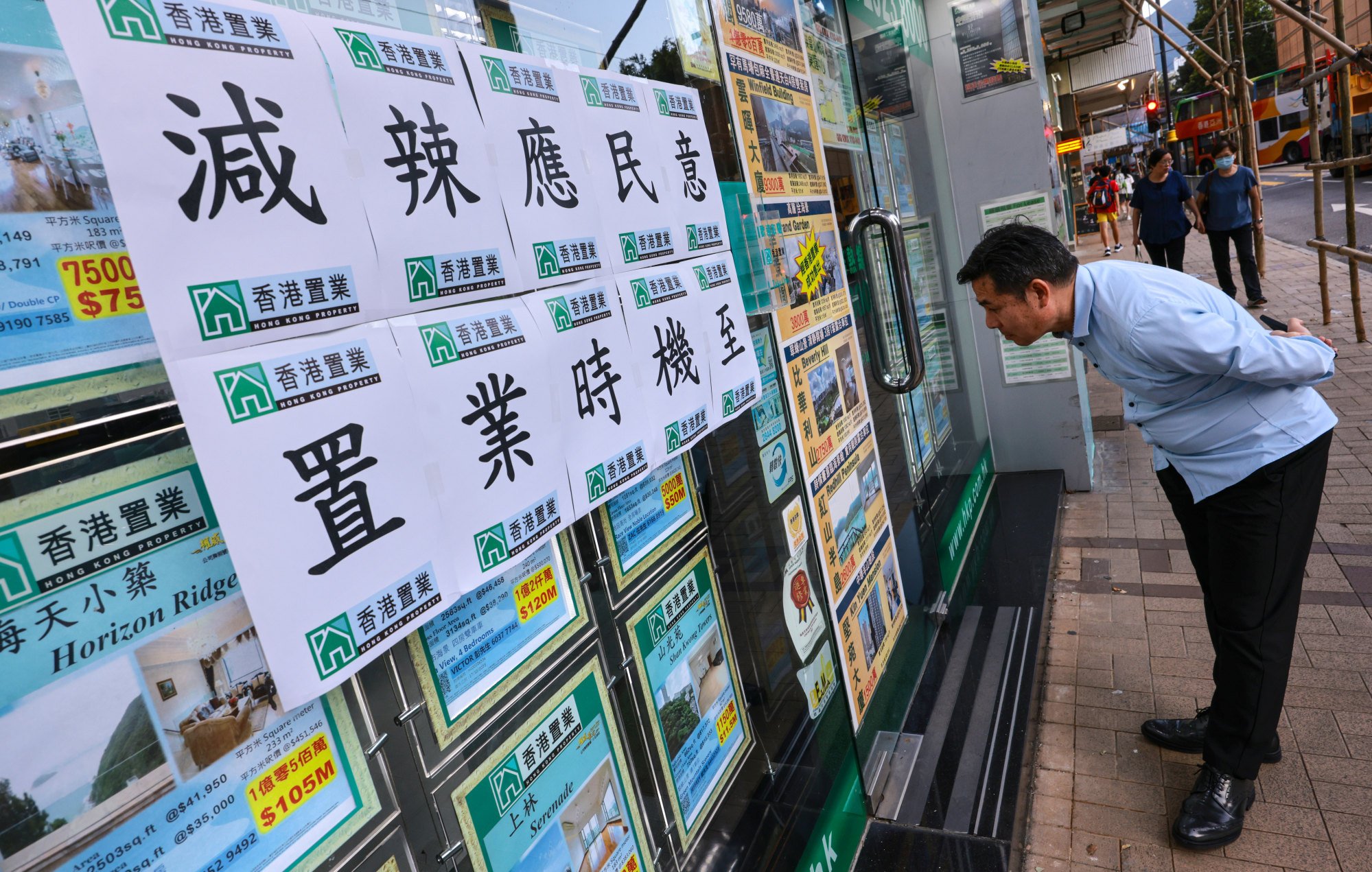
Hong Kong home prices fall for ninth straight month, intensifying calls for lifting property curbs
- An index tracking second-hand unit prices declined in January to the lowest since October 2016
- Secondary-market prices of Hong Kong homes have retreated 23 per cent from their peak in September 2021
Hong Kong’s lived-in home prices fell for the ninth straight month in January, dropping 1.57 per cent and dragging the city’s official home price index down to a level last seen more than seven years ago, the latest government data showed.
Secondary-market prices of Hong Kong homes have retreated 23 per cent from their peak in September 2021, according to government statistics. The nine-month losing streak, the longest since the outbreak of Sars (severe acute respiratory syndrome) in 2003, led to an aggregate fall of 13.5 per cent in Hong Kong home prices from April 2023.
“If the property curbs can be significantly reduced or even completely withdrawn as expected by the market, it will promote a significant increase in transaction volumes and drive up property prices,” said Derek Chan, research head at property agency Ricacorp Properties.
Financial Secretary Paul Chan Mo-po is set to deliver his budget speech on Wednesday, where he is widely expected to take aim at a ballooning deficit, estimated to exceed HK$100 billion (US$12.8 billion), amid growing calls for withdrawing property curbs.

Demands from the industry have included scrapping the curbs, such as a special stamp duty applied to a residential property resold within 24 months, a buyers’ stamp duty (BSD) for non-permanent residents and a double stamp duty on flats for second-time purchasers.
Mid-Levels on sale: buyers hunt foreclosed luxury Hong Kong homes amid distress
In his second policy address in October, Chief Executive John Lee Ka-chiu announced several measures to relax the decade-old property curbs. These included halving the BSD to 7.5 per cent for non-permanent residents and residents buying a second or additional home.
A special stamp duty of 10 per cent was also waived for homeowners who resell their property after two years, from the previous three-year requirement. Eligible overseas professionals are also not required to pay stamp duty on property purchases unless they fail to become permanent residents.
The relaxation, however, has had little impact on the housing market, according to JLL, with only 16 home sales involving BSD recorded until January. The sales of second-hand units were still lower than the “crucial” 3,500 monthly level, it said.
JLL said historical analysis suggests that home price stabilisation would require monthly secondary residential transaction volumes to remain above 3,500.
“During this round of price corrections, second-hand units, especially those close to new residential projects, suffered a larger decline,” said Eddie Kwok, senior director, valuation and advisory services, CBRE Hong Kong.
Since the second half of 2023, developers have extended discounts of as much 20 per cent to offload their inventory. CK Asset Holdings first offered a 16 per cent discount on 626 units of its Coast Line II project in Yau Tong. Other developers have followed suit, with the latest being Wang On Properties, which offered 165 units of its Phoenext project in Wong Tai Sin last month at a discount of as much as 30 per cent.
“Secondary homeowners need to cut more prices to sell their units,” said Kwok, as developers continue to offer “attractive prices” for their new projects.
The downbeat property market should “provide opportunities for long-term investors or users”, he said.
“The market expects the government will further relax the stamp duty during the upcoming budget,” Kwok said. “We believe this will lend support to the housing prices in the near term. Yet, the residential market outlook still depends on interest rate movement as well as developers’ offer prices for upcoming residential projects.”

